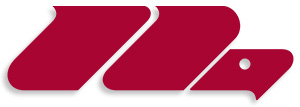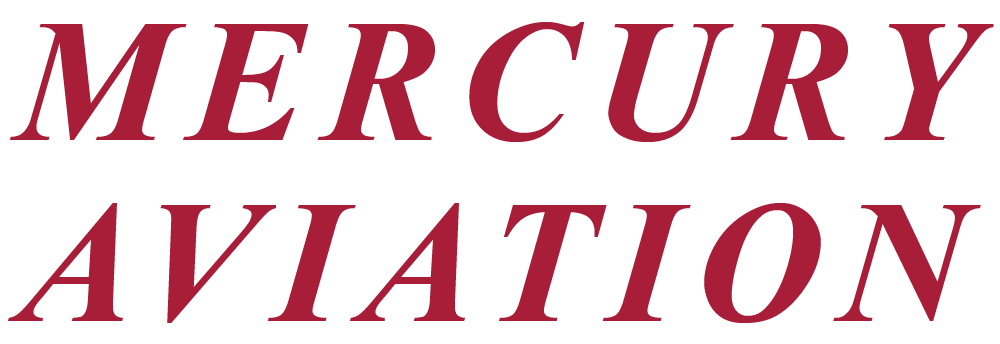A Busy Year Thus Far at Mercury Air Cargo
A Busy Year Thus Far at Mercury Air Cargo
 It's been an eventful year thus far at Mercury Air Cargo. For a company where it's not uncommon to take on an additional one or two clients over the course of twelve months, Mercury Air Cargo has taken on a whopping eight new contracts and hired more than 100 additional staff members in the last 12 months.
It's been an eventful year thus far at Mercury Air Cargo. For a company where it's not uncommon to take on an additional one or two clients over the course of twelve months, Mercury Air Cargo has taken on a whopping eight new contracts and hired more than 100 additional staff members in the last 12 months.
"Growth is great, but sometimes it can be difficult to manage," said John Peery, the Chief Operating Officer and Executive Vice President of Mercury Air Cargo. Just like any startup, there's a lot of work to do to get up and running, and it takes time to put all the procedures and personnel into place. "If you have a good team, you can definitely take on those challenges, and we've been able to do so and succeed," he said.
The new contracts include the following air carriers: Air Bridge, British Airways, Iberia Airlines,Qatar Airways, DB Schenkers Export, DB Schenkers Import (two separate contracts), Centurion Cargo, and most recently, Air France/KLM/Alitalia.
The preparation work that goes into setting up a new contract can be challenging, and even more so, Peery said, because each carrier's needs are different.
Despite that the mechanics of each operation appear very similar, "freight is not freight," Peery warns. Each carrier will have different policies, procedures, and operating systems they use to ramp up. "You would think because everyone is in the same business, they would be able to photocopy the boiler plate and pass it from one carrier to another, but that's not the fact". "Everyone has a different focus on issues particularly within two protocols - safety and security," he said.
Part of the process is getting the facility itself in order - ensuring there are the correct number of dock doors, or that there is adequate warehouse floor space – but also, hiring enough people to staff the mission. Not only is having enough personnel important, they also have to be people who work well as a team.
"Cargo is a teamwork effort," Peery said, giving the example that it can take 4-5 people to break down a flight or 8-10 to build a flight, "They all have to work in harmony. That means they have to know each other, and they have to understand each others' weaknesses and strengths and work together towards that final goal."
"We've been successful because we have great managers and supervisors that build that teamwork effort," he said.
"It's the people that make the difference.," he said. "It is our people that do the job every day that puts us above our competitors – that's where the strength of our company comes from."
All of this has had to happen quickly over the last few months: getting employees trained on the basics and standards within TSA, OSHA, and FAA, all before sending them to the warehouses where Peery said their education really starts. It can take upwards of 3 months for someone to get comfortable with the process, he said, but for some of the contracts they had less than one month to get up and running.
Peery said the most critical piece is finding the right manager to interface with the customer in way that fits the mentality of the carrier. With so many air carriers traveling to and from so many different parts of the planet – Asia, North and South America, Europe, etc. – it's important to focus on the uniqueness of each carrier, and then finding people who can understand and respond well to that culture. "You've got to have a working relationship where it's a partnership, and a lot of that is chemistry - picking the right people for an operation, given the dynamics or the culture of the carrier we're handling."
Peery is proud to say that Mercury Air Cargo has been very successful in the training and selection of its people, and the customers know it. Mercury has been able to retain many of its customers for decades. "We've retained [our customers] because, the management that oversees those accounts, understand and respond to the needs of that customer. Our managers need to be an extension of the carriers, and the carriers need to, feel that as we'll" he said.
A Global Leader in Aviation Services
Mercury Aviation LLC has been providing services to the aviation industry and the U.S. Government for more than 60 years. We believe that our team is the best, and so is our offering. Please let us know how we can meet your aviation needs.
Contact UsContact Us
Mercury Aviation LLC
Corporate Headquarters
2780 Skypark Dr
Torrance, CA 90505
Phone: (310) 827-5778
Fax: (310) 827-8921
Send Us A Message.
Terms of Use • Privacy Policy
© Mercury Aviation LLC
All Rights Reserved

